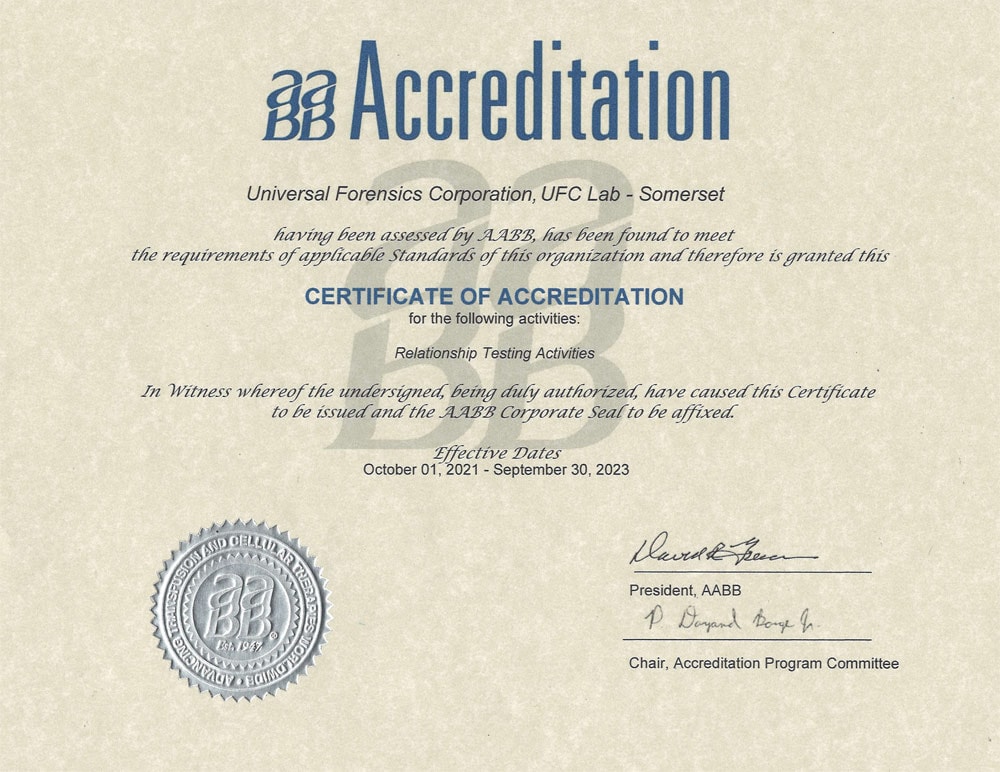Legal vs. Non-Legal Paternity Testing: Which One Do You Need?

Introduction
Paternity testing is a crucial process that establishes the biological relationship between a child and an alleged father. It is often sought for various reasons, including legal matters, personal inquiries, or family lineage discussions. The testing can either be legal, which holds up in court, or non-legal, often used for personal knowledge. Understanding the differences between these two types of paternity testing is essential for making informed decisions based on specific needs and circumstances.
This article aims to provide a comprehensive overview of legal and non-legal paternity testing, comparing their processes, benefits, limitations, and implications. By the end, readers will have a clearer understanding of which type of testing might be right for them and how to proceed accordingly.
Understanding Paternity Testing
Paternity testing involves analyzing DNA samples to determine whether an individual is the biological father of a child. The testing typically compares genetic markers from the child and the alleged father, with a high degree of accuracy in the results. With advancements in genetic technology, paternity testing has become more accessible and reliable, allowing individuals to seek clarity in potentially complex familial situations.
Establishing paternity is not just about confirming biological connections; it often plays a significant role in legal rights, such as child support, inheritance, and custody issues. Therefore, the implications of paternity testing can extend far beyond mere curiosity, impacting various aspects of life for both the child and the parents involved.
Types of Paternity Testing
What is Legal Paternity Testing?
Legal paternity testing is conducted under strict procedures that ensure the integrity of the results can be used in a court of law. This type of testing requires the presence of an impartial witness, often a medical professional, who collects the DNA samples to maintain a documented chain of custody. Legal tests are typically requested in family law cases, such as custody disputes or child support hearings, where the outcome has significant legal consequences.
What is Non-Legal Paternity Testing?
In contrast, non-legal paternity testing is intended for personal knowledge rather than legal purposes. This type of testing can be performed at home using kits available for purchase online or in stores. While non-legal tests can provide accurate results, they lack the formal procedures and documentation necessary for legal validation. Individuals often opt for non-legal testing when they want to establish paternity for personal reassurance or to informally discuss family matters.
Legal Paternity Testing
Process of Legal Paternity Testing
The process of legal paternity testing begins by selecting a certified laboratory that specializes in forensic DNA testing. After scheduling an appointment, individuals must provide identification and sign consent forms. During the sample collection, a qualified professional, such as a nurse or a lab technician, will collect DNA samples from the child, the alleged father, and sometimes the mother, ensuring that all samples are properly labeled and documented.
Once the samples are collected, they are sent to the laboratory for analysis. The laboratory will analyze the DNA markers and provide a report indicating the probability of paternity. Legal testing typically guarantees a high accuracy rate of over 99.9% when the alleged father is indeed the biological parent.
Chain of Custody
The chain of custody is a critical aspect of legal paternity testing. It refers to the process of maintaining and documenting the handling of the DNA samples from the moment they are collected until the results are reported. This ensures that the samples remain uncontaminated and provides a record that can be presented in court if necessary. A break in the chain of custody can lead to questions about the validity of the results, making the process of legal testing stringent and meticulous.
When is Legal Testing Necessary?
Legal paternity testing is often necessary in situations where paternity must be established for legal purposes. This includes child support cases, custody disputes, or inheritance claims. If there is any potential for future legal ramifications, opting for a legal paternity test is advisable. Courts typically require documentation from a legally recognized laboratory, making non-legal tests insufficient in these scenarios.
Benefits of Legal Paternity Testing
One of the primary benefits of legal paternity testing is its legitimacy in court. The results can be used as admissible evidence in legal proceedings, providing clarity and resolution in complex family matters. Additionally, legal paternity testing offers peace of mind, as individuals can trust that the results are accurate and verifiable.
Furthermore, legal paternity tests are conducted by accredited laboratories using advanced techniques, ensuring high accuracy in results. This not only provides a definitive answer regarding paternity but also protects the legal rights of the child, ensuring that they receive the support and recognition they deserve from both parents.
Limitations of Legal Paternity Testing
Despite the numerous advantages, legal paternity testing is not without its limitations. The process can be lengthy, often taking several days to weeks for results to be finalized. Additionally, the costs associated with legal testing can be significantly higher than non-legal options due to the strict protocols and documentation required.
Moreover, legal paternity tests require participation from all parties involved, which may not always be achievable in complicated familial situations. In instances where one party refuses to participate, legal testing may not be feasible, necessitating alternative approaches to ascertain paternity.
Non-Legal Paternity Testing
Process of Non-Legal Paternity Testing
The process of non-legal paternity testing is generally more straightforward than legal testing. Individuals can purchase a home test kit, which typically includes swabs for collecting saliva samples from the child and the alleged father. After collecting the samples, users send them to the laboratory indicated in the kit. The results are usually returned within a few days, making the non-legal testing a quicker option.
However, it’s important to note that while the method is convenient, the absence of oversight in sample collection can lead to potential issues with accuracy. Non-legal tests may not provide the same level of assurance regarding the integrity of the results since they lack the chain of custody that legal tests ensure.
When is Non-Legal Testing Appropriate?
Non-legal paternity testing is suitable for individuals who seek answers without the need for legal validation. It is often chosen by those looking for personal reassurance regarding familial connections or for discussions about family heritage. Non-legal tests can also be beneficial for individuals who may not wish to involve legal authorities in their personal matters or for those facing resistance from the alleged father.
Benefits of Non-Legal Paternity Testing
One of the main benefits of non-legal paternity testing is its accessibility. These tests can often be purchased online or at local retailers, making them easy to obtain without the need for appointments or professional involvement. Additionally, non-legal tests are typically more affordable than legal tests, catering to individuals who may have budget constraints.
Moreover, the results from non-legal paternity tests can provide individuals with answers quickly, allowing for personal closure without the formalities associated with legal procedures. This can be particularly valuable for those simply wanting to understand their family’s dynamics without navigating the complexities of the legal system.
Limitations of Non-Legal Paternity Testing
While non-legal paternity testing has its perks, there are several limitations to consider. The primary concern is that the results cannot be used in a court of law, making them insufficient for matters requiring legal validation. This limitation restricts the use of non-legal testing for individuals who may need definitive proof of paternity for legal reasons.
Furthermore, without an impartial witness during the sample collection process, there can be questions about the authenticity and reliability of the results. This lack of oversight can lead to potential false results, creating further complications in understanding paternity.
Comparative Analysis
Accuracy of Results
Both legal and non-legal paternity testing methods offer high accuracy rates, often exceeding 99%. However, legal tests are typically more reliable due to the strict protocols in place that ensure the integrity of the sample collection process and analysis. Non-legal tests, while still accurate, have the potential for human error during sample collection, which may affect the results.
Cost Considerations
Cost is a significant factor when choosing between legal and non-legal paternity testing. Legal tests tend to be more expensive due to the procedural requirements and documentation involved. In contrast, non-legal tests are generally more affordable, making them an appealing option for those seeking results without the need for legal validation.
Timeframe for Results
When it comes to the time taken to receive results, non-legal paternity testing often has the upper hand. Results can be obtained within a few days, providing quick answers for individuals. Legal tests, however, may take longer due to the intricate procedures and verification processes involved, potentially extending the waiting period to several weeks.
Privacy Concerns
Privacy is a critical concern when it comes to paternity testing. Non-legal testing is typically more discreet, allowing individuals to obtain results without involving third parties or legal systems. This is beneficial for those wishing to keep their familial matters private. In contrast, legal testing requires documentation and may involve legal authorities, which could compromise privacy.
Choosing the Right Test for Your Needs
Factors to Consider
When deciding between legal and non-legal paternity testing, several factors should be taken into account. One of the most important considerations is the purpose of the testing. If legal documentation is necessary-for instance, in cases of child support or custody disputes-then legal testing is essential. On the other hand, if the goal is merely to satisfy personal curiosity, a non-legal test may suffice.
Additionally, individuals should consider the potential costs, timeframes for receiving results, and privacy concerns. Those facing financial constraints or wanting quick answers may lean towards non-legal testing, while those requiring verified results will prioritize legal testing despite the increased costs and time involved.
Consultation with Professionals
For individuals uncertain about which type of paternity testing to pursue, consulting with professionals, such as family law attorneys or genetic counselors, can provide valuable insights. These experts can offer guidance tailored to individual situations, helping to clarify whether legal validation is necessary or if personal testing is sufficient. Furthermore, professional consultations can ensure that individuals are informed about the procedures, implications, and potential outcomes of each testing option.
Relialab Test Services
Overview of Relialab Test
Relialab Test is a leading provider of DNA testing services, specializing in both legal and non-legal paternity testing. With a commitment to accuracy and reliability, Relialab Test utilizes state-of-the-art technology and experienced professionals to ensure the highest quality results for clients. They understand the sensitive nature of paternity testing and strive to provide compassionate support throughout the process.
Our Paternity Testing Options
Relialab Test offers a variety of paternity testing options tailored to meet diverse client needs. Clients can choose between legal and non-legal testing based on their requirements. Legal paternity tests are conducted with strict adherence to chain-of-custody protocols, while non-legal tests offer a more accessible and affordable alternative for personal inquiries. Each testing option comes with comprehensive support, ensuring clients are well-informed and comfortable throughout the process.
Why Choose Relialab Test?
Choosing Relialab Test for paternity testing comes with numerous benefits. The company prides itself on delivering accurate results efficiently, often providing results faster than many competitors. Additionally, Relialab Test is dedicated to customer service, guiding clients through every step of the process and addressing any questions or concerns that may arise. With a team of qualified professionals and a commitment to ethical practices, Relialab Test remains a trusted choice for individuals seeking clarity in paternity matters.
Conclusion
Recap of Key Points
In summary, understanding the differences between legal and non-legal paternity testing is essential for individuals seeking to establish paternity. Legal paternity testing is necessary for legal matters and is conducted with strict protocols to ensure the results are admissible in court. In contrast, non-legal testing provides quick and affordable results for personal knowledge but lacks legal validation.
Encouragement to Explore Paternity Testing
Anyone contemplating paternity testing should evaluate their specific needs and the implications of the results. Whether legal or non-legal, obtaining clarity on paternity can significantly impact family dynamics, legal rights, and personal peace of mind.
Contact Information for Relialab Test
For those interested in exploring their paternity testing options, Relialab Test is available to assist. For more information, visit our website or contact our team today to discuss your needs and how we can help you achieve the clarity you seek.








